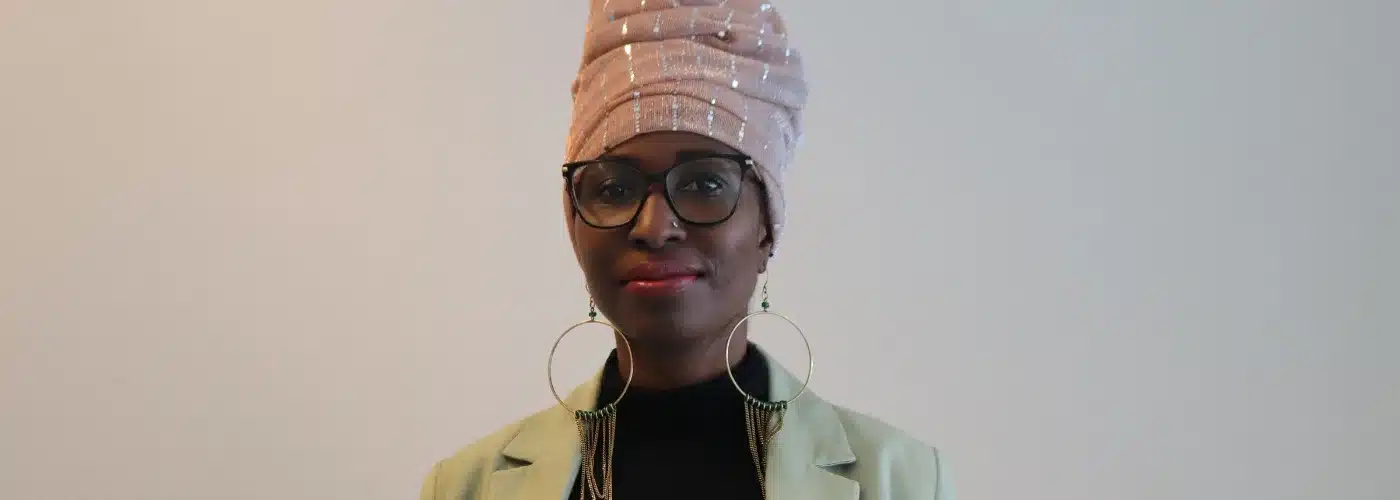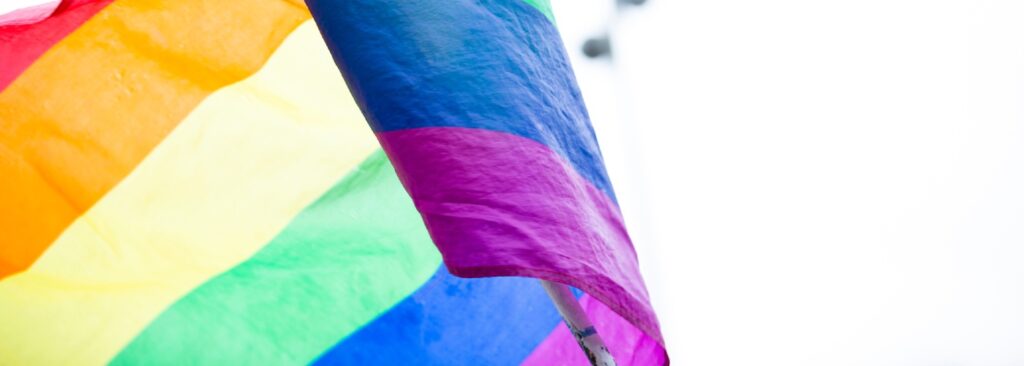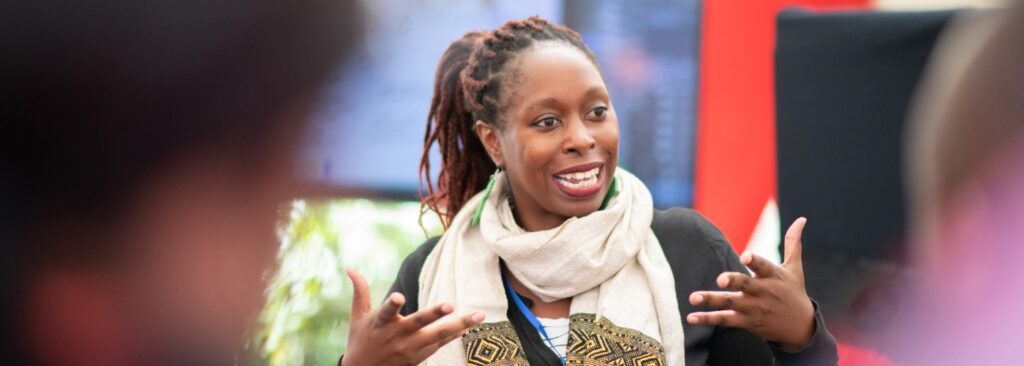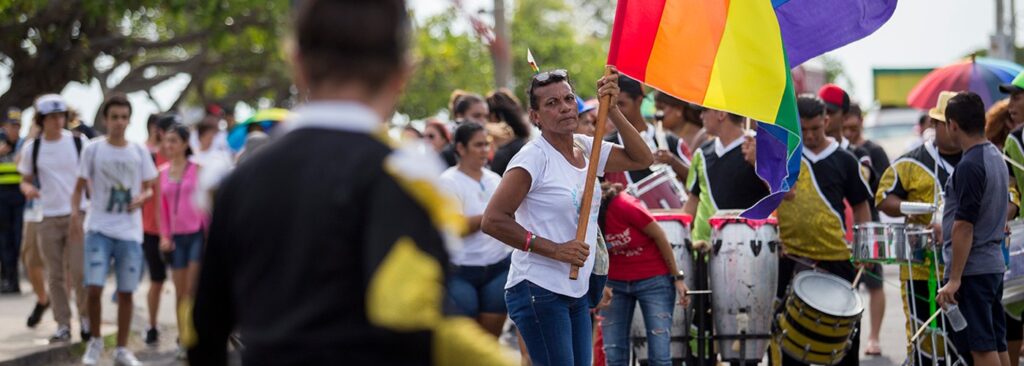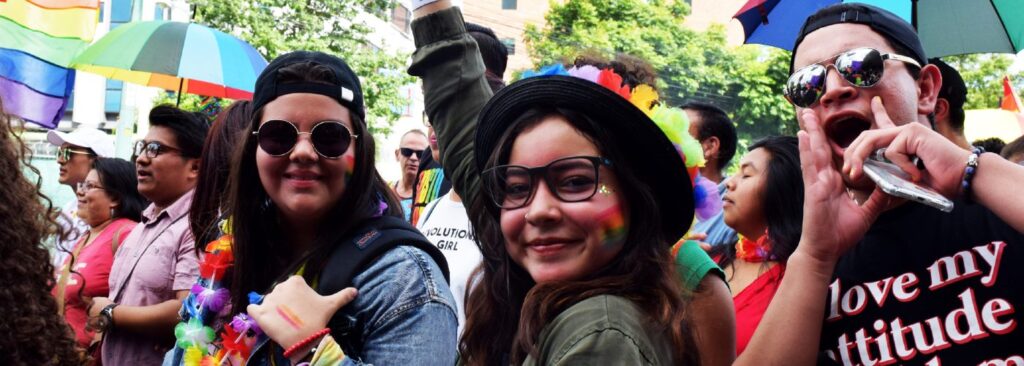On March 21, a strict anti-LGBTIQ+ law was passed in Uganda. Sex between two people of the same sex was already punished with life sentences; now it is also a crime to identify as LGBTIQ+. This worrying development is also affecting neighboring countries.
The new law, Anti-homosexuality Bill, 2023, restricts the freedoms and rights of LGBTIQ+ people even further. Sentences can run up to 10 years in prison. There is even a threat of the death penalty being introduced for “serious homosexual acts,” for example if the “perpetrator” is HIV positive. In fact, the majority of the provisions in the bill violate fundamental rights guaranteed under Uganda’s Constitution.
A stick to beat with
Uganda is the first country in the world where just calling yourself LGBTIQ+ is a criminal offence. “What is happening now goes far beyond anything we have seen before. And that in a country which is already very homophobic,” says Saida Ali. Saida leads our Free to be Me program from Kenya. The program aims at the socio-economic inclusion of the LGBTIQ+ community in 14 countries worldwide.
“What worries me most is that calling someone LGBTIQ+ can be interpreted freely. It happens based on how people look and how they dress and express themselves. It gives opponents and the police a stick to beat with. Because of this law, they feel that their actions are justifiable. It only fuels more hatred.”
Even more unsafe
The unrest has increased in recent weeks, both in Uganda and neighboring countries. “There are demonstrations by anti-LGBTIQ+ movements, and we also see a huge increase in hate messages online. We know from experience that when that happens, it also translates into aggression and attacks on the street,” says Saida.
“Since the new law was passed, people have been persecuted, fired and evicted. This is not only happening in Uganda, but also in neighboring countries such as Kenya. It’s extremely unsafe. Also for allies and people who are not LGBTIQ+. For example, because they know someone from the community but have not reported it, or because they have helped an LGBTIQ+ person find a job or place to live.”
At the same time, Saida sees a lot of resilience and connection within the community. “They know how to organize themselves in an incredible way. They find safe ways to come together and know how to reach out to organizations for support. And sometimes support is all it takes to make yourself strong.”
Time to act
For Saida, support means speaking up and taking action. “It’s no longer enough to stand on the sidelines and raise rainbow flags during pride events. Human rights are being violated. Within Free to be Me we have a mantra: be bold, be bolder if you can, and stand up for human rights. That is my appeal to foreign governments, to the EU, to the UN, to international partners, and to the international community. They must now show solidarity by standing up for human rights and speaking out.”
That is not always without risk. “Being an ally in one of these countries comes with a price. They too are gagged and persecuted, or kicked out. But those who have the opportunity and security to speak out should take advantage of it. This will amplify the voices of the communities under attack.”
Bessy Ferrera Fund
In recent weeks we have seen a huge increase in the number of applications for our Bessy Ferrera Fund from organizations and activists in East Africa. This is an emergency fund that assists LGBTIQ+ activists in life-threatening situations. For example, when they are persecuted, mistreated, evicted from their home, or fired.
In a short time we were able to assist several LGBTIQ+ organizations in the region. And more support is badly needed. Saida: “This is a crisis. There is an urgent need for safety, shelter and food.”
Read our statement regarding Uganda’s Anti-Homosexuality Bill, 2023.

